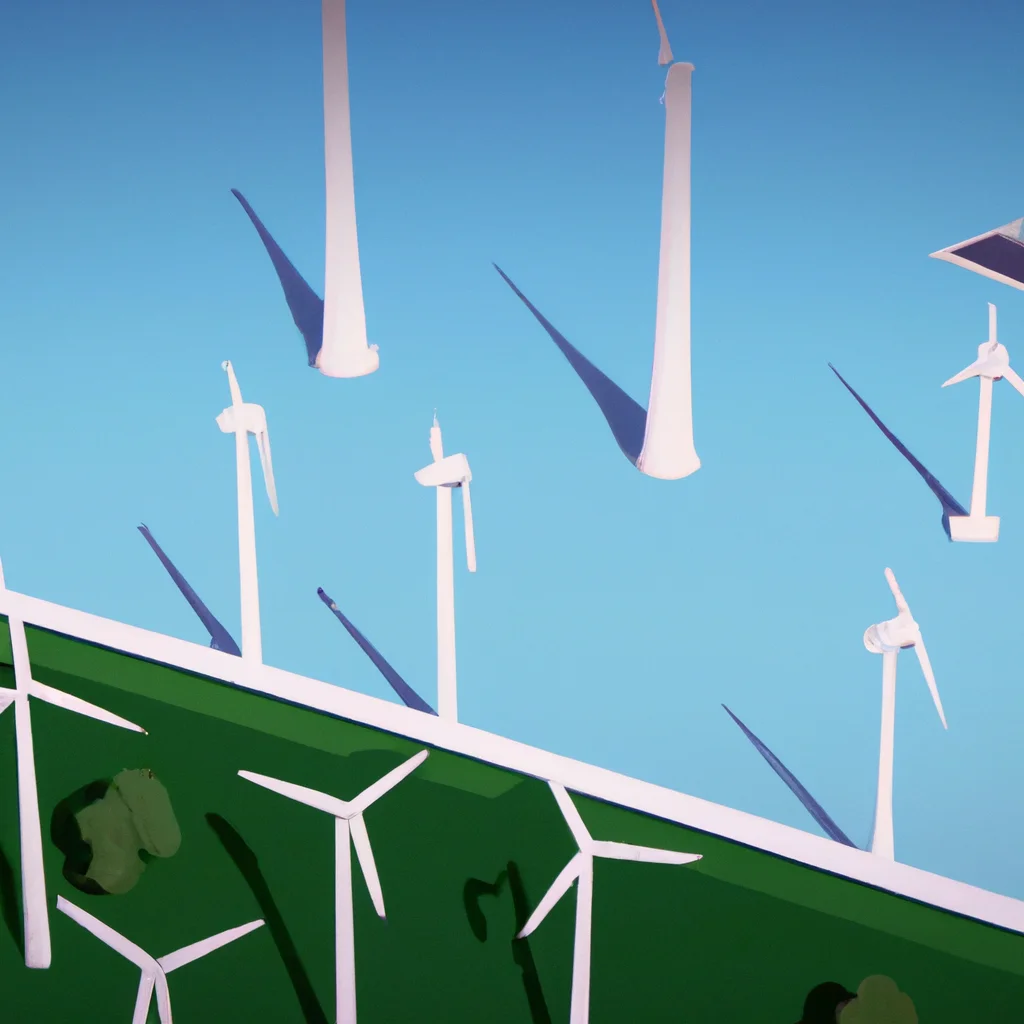What are the different types of renewable energy sources?


What are the different types of renewable energy sources?
Renewable energy sources are crucial in today’s world as they help reduce greenhouse gas emissions that are responsible for climate change. These sources are those that can be replenished or regenerated naturally and are not exhausted like fossil fuels. Some of the most common types of renewable energy sources are solar power, wind power, hydro power, and geothermal energy. Let’s explore each of these in detail.
Solar Power
Solar power is the most well-known and widely used type of renewable energy source. It involves harnessing energy from the sun and converting it into electricity. This is done through the use of solar panels, which are usually installed on rooftops or in open fields. When sunlight hits the panels, it is converted into direct current (DC) electricity, which is then converted into alternating current (AC) electricity using an inverter. This electricity can then be used to power homes, businesses, and even entire cities.
One of the benefits of solar power is that it is a completely clean and renewable source of energy. It does not produce any harmful emissions or pollutants, making it an environmentally friendly choice. Additionally, solar power is becoming increasingly affordable, with the cost of solar panels decreasing significantly in recent years.
Wind Power
Wind power is another popular type of renewable energy source. It involves capturing the energy from wind turbines and converting it into electricity. Wind turbines are typically installed in areas with high wind speeds, such as on hilltops or offshore. When the wind blows, it causes the turbines to spin, which generates electricity.
Wind power is also a clean and renewable source of energy. It produces no greenhouse gas emissions or pollutants, making it an excellent choice for reducing carbon footprints. Additionally, wind power is becoming increasingly cost-effective, with the cost of wind turbines decreasing significantly in recent years.
Hydro Power
Hydro power involves harnessing the energy from moving water, such as rivers or waterfalls, and converting it into electricity. This is typically done through the use of hydroelectric power plants, which use turbines to generate electricity. The force of the moving water causes the turbines to spin, which generates electricity.
Hydro power is another clean and renewable source of energy. It produces no greenhouse gas emissions or pollutants, making it an excellent choice for reducing carbon footprints. Additionally, hydro power is a reliable source of energy, as long as there is a constant supply of moving water.
Geothermal Energy
Geothermal energy involves harnessing the heat from the earth’s core and converting it into electricity. This is typically done through the use of geothermal power plants, which use steam to generate electricity. The steam is created by pumping water into the earth’s core, where it is heated by the natural heat of the earth. The steam is then used to power turbines, generating electricity.
Geothermal energy is another clean and renewable source of energy. It produces no greenhouse gas emissions or pollutants, making it an excellent choice for reducing carbon footprints. Additionally, geothermal energy is a reliable source of energy, as long as there is a constant supply of heat from the earth’s core.
Conclusion
In conclusion, renewable energy sources are crucial in reducing greenhouse gas emissions and combating climate change. Solar power, wind power, hydro power, and geothermal energy are all excellent choices for generating clean and renewable energy. Each of these sources has its unique benefits and drawbacks, so it’s essential to choose the one that is most suitable for your needs. As we continue to strive towards a more sustainable future, renewable energy sources will undoubtedly play a significant role.
Recent Posts
How do I create an engaging and informative online quiz or assessment?
Creating an engaging and informative online quiz or assessment can be a powerful tool for… Read More
What are the most effective methods for managing and reducing work-related stress in the hospitality industry?
Work-related stress is a common issue in the hospitality industry, where employees often face long… Read More
How can I improve my assertiveness and communication skills in a leadership position?
In a leadership position, assertiveness and effective communication skills are crucial for success. Being able… Read More
What are the key elements of a successful employee recognition and rewards program?
Employee recognition and rewards programs play a crucial role in motivating and engaging employees, as… Read More
How do I effectively manage and respond to customer feedback and reviews?
Customer feedback and online reviews play a crucial role in shaping a company's reputation and… Read More
What are the best strategies for effective time management as a stay-at-home parent?
Effective time management is crucial for stay-at-home parents who juggle multiple responsibilities on a daily… Read More